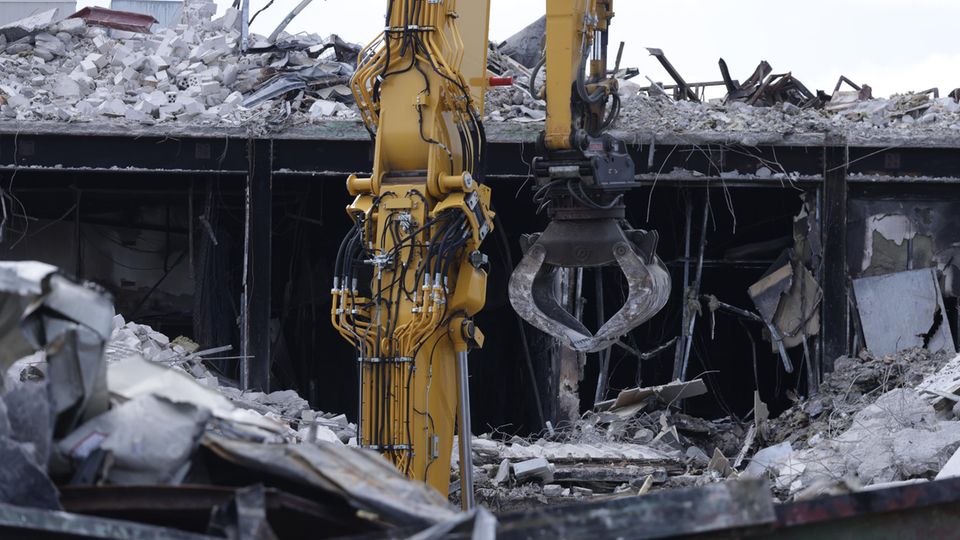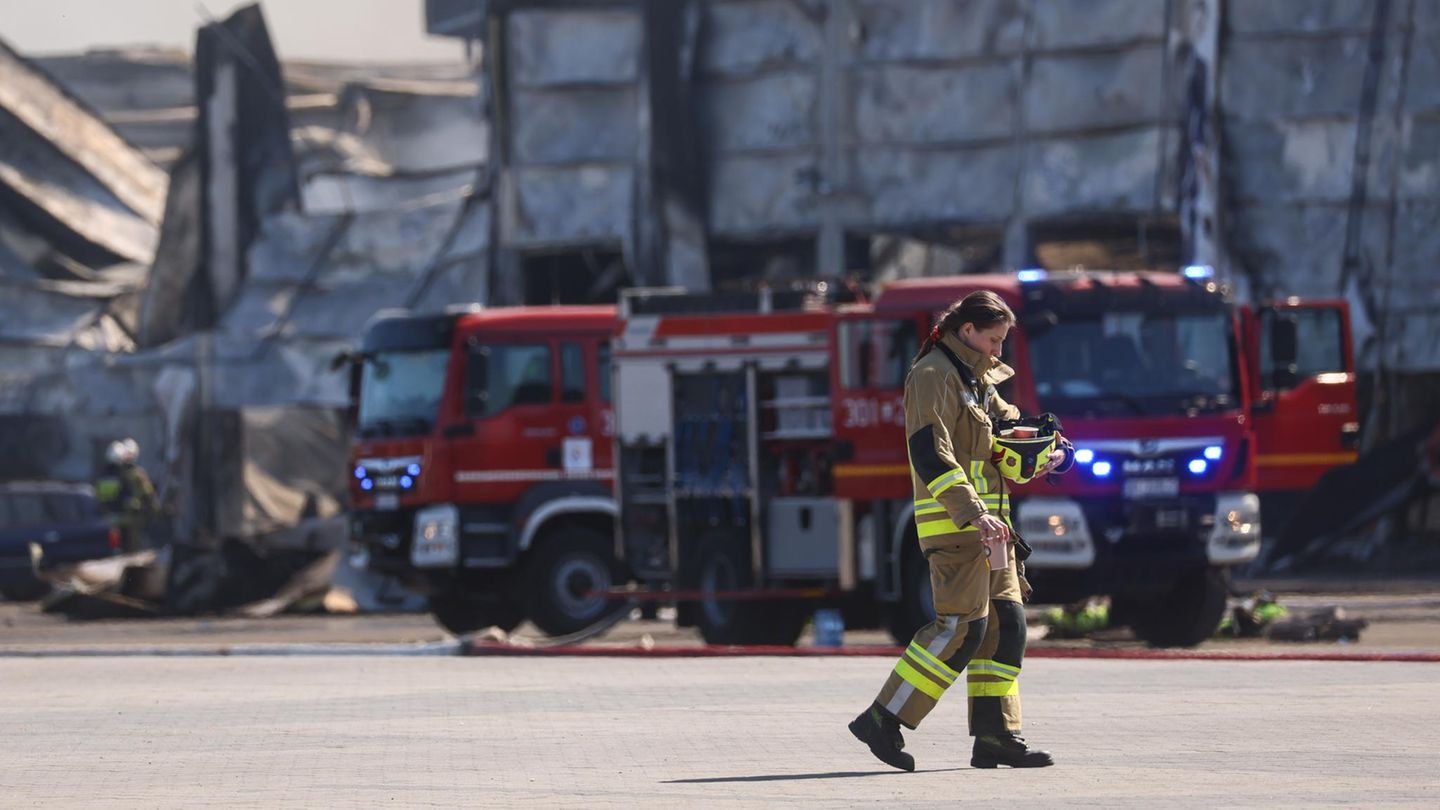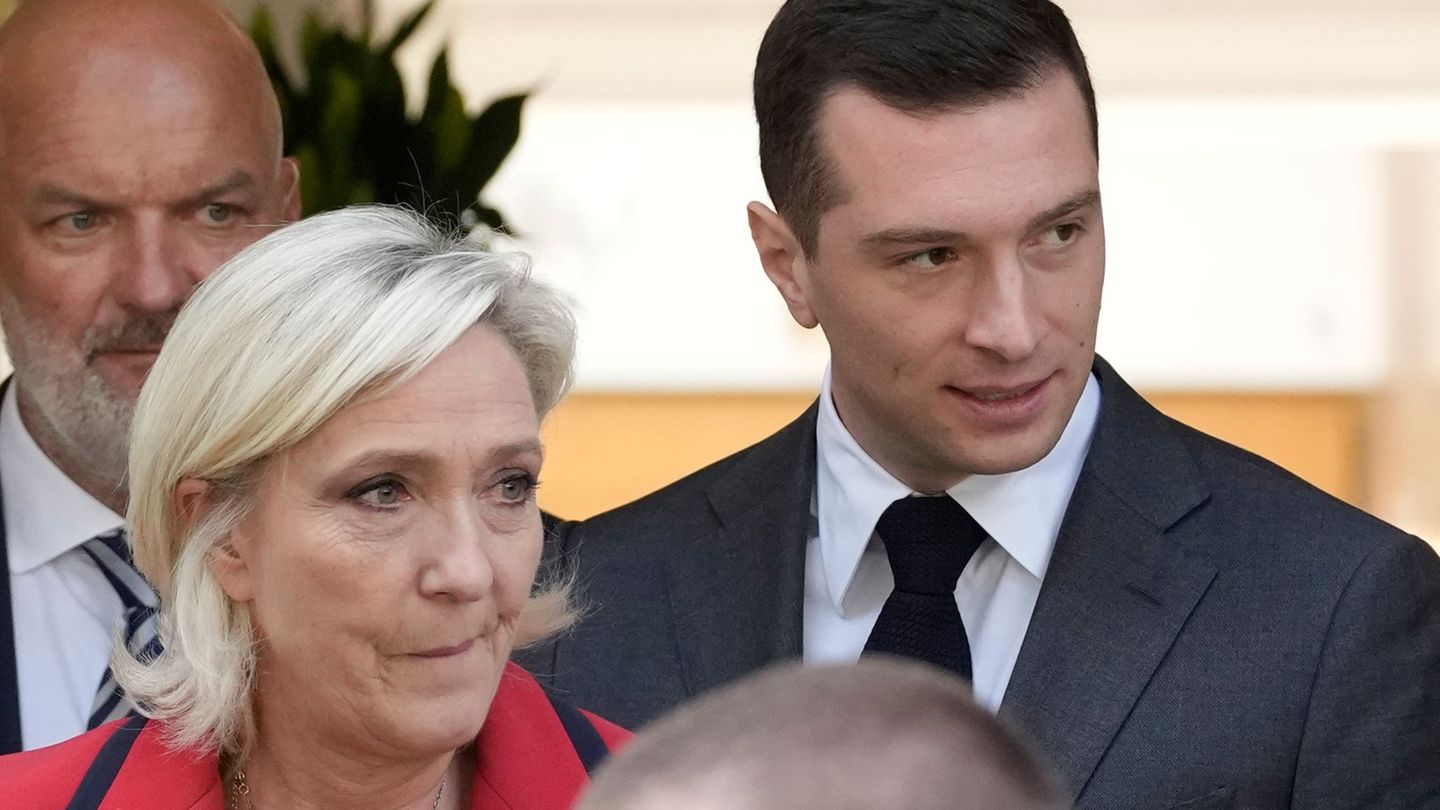The Federal Office for the Protection of the Constitution sees an “increased risk” from Russian saboteurs. Putin’s secret services could recruit agents in Germany for arson attacks – without them knowing who they are working for.
It is a stark warning issued by the Federal Office for the Protection of the Constitution: Russia is planning acts of sabotage on German soil, and there are “increasing indications of possible activities in Germany”.
This is what the new security notice published by the intelligence service on Friday says. The Office for the Protection of the Constitution is particularly concerned about attempts by Russian secret services to recruit henchmen.
The fact that Germany is in the sights of Russian secret services has been known since the so-called Tiergarten murder in 2019, when a Russian shot a Georgian in Berlin, presumably on behalf of the Russian FSB. The now published information underlines how great the local security authorities now consider the threat posed by Russian agents and henchmen to be. The most important questions and answers.
What dangers does the Federal Office for the Protection of the Constitution warn about?
The Federal Office for the Protection of the Constitution warns of arson and vandalism on behalf of Russian secret services. “Objects that have a connection to military support for Ukraine” are at risk, such as weapons production facilities or warehouses for deliveries to Ukraine.
However, Russian attacks could also target places that are not connected to the war in Ukraine. The Federal Office for the Protection of the Constitution believes that the Russian services want to create “uncertainty and fear in politics and the public” through acts of sabotage and arson attacks.
In recent months, several arson attacks have been reported in other European countries, and local authorities suspect that Russian secret services are behind them. In March, a warehouse in East London that was storing goods for Ukraine burned down. A month later, four Britons were charged with arson; two of them are said to have been in contact with a Russian secret service and to have been paid by it.
In mid-May, a shopping center in Warsaw was apparently also the target of arson. According to Polish Prime Minister Donald Tusk, Russian services may have been involved. The investigation into the cause of the fire is ongoing.
Who is the focus of recruitment attempts from Russia?
Not everyone who works for a Russian secret service knows who their actual employer is, according to the Federal Office for the Protection of the Constitution. When recruiting henchmen, agents do not necessarily reveal their identity.
In particular, employees of companies that manage critical infrastructure, such as power suppliers, hospitals or railway operators, should remain vigilant. There are indications that Russian intelligence services are specifically searching social media profiles.
The aim was to identify employees “who could be susceptible to Russian attempts to exert influence or initiate contact.” “Be aware,” writes the Federal Office for the Protection of the Constitution, “that you too could become the focus of Russian intelligence services and be used to enforce their interests.”
In other European countries, the Office for the Protection of the Constitution is also monitoring the recruitment of so-called “low-level agents”. These are people who carry out missions for Russia without any training as agents. The agents are recruited via social networks or messengers, mainly young adults who speak Russian and are ideologically pro-Russian. Their goal: to make quick money.
This was also the case with 14 saboteurs in Poland who were sentenced in Lublin in December. According to the district court there, a Russian secret service agent commissioned the perpetrators via Telegram to set fires or to install cameras on train routes that transport tanks to Ukraine. Or to spray “Stop NATO” on fences, for which the convicted persons received just under seven euros per order, paid out in bitcoins, according to the Wall Street Journal.
Are there already known acts of sabotage by Russia in Germany?
Officially, the German law enforcement authorities have not yet been able to prove that Russia has committed any acts of sabotage. In April, however, the police in Bayreuth arrested two German-Russians, suspected of being Russian spies. According to the Federal Prosecutor General, they are said to have spied on the US base in nearby Grafenwoehr and prepared acts of sabotage aimed at undermining military support for Ukraine.
In a broader sense, the alleged attack plans on Rheinmetall CEO Armin Pappberger, which the US broadcaster “CNN” recently reported on, can also be seen as an attempt at sabotage.
Cover-ups and obfuscation are at the core of hybrid warfare, as practiced by the Kremlin. This is why the information provided by different security agencies can contradict each other significantly. The fire at the Berlin plant of the weapons manufacturer Diehl in early May shows how complicated the process of finding the truth has become.
The company builds the Iris-T guided missile, which Ukraine uses to defend against Russian air attacks, although according to its own statements, at a different location. Diehl itself said that a technical defect was the cause of the fire, and there was no evidence of sabotage.

However, the US “Wall Street Journal” and “Bild” reported that a foreign intelligence service had informed the German government of the possible involvement of Russian saboteurs. This account was rejected in German security circles, as “Spiegel” reported.
Do you have any information about acts of sabotage on German soil or are you aware of a suspected recruitment attempt? Write to us by or encrypted on : 52YH2YAV.
Source: Stern
I have been working in the news industry for over 6 years, first as a reporter and now as an editor. I have covered politics extensively, and my work has appeared in major newspapers and online news outlets around the world. In addition to my writing, I also contribute regularly to 24 Hours World.




